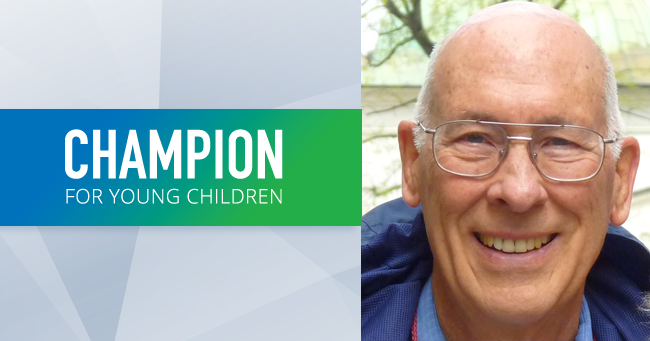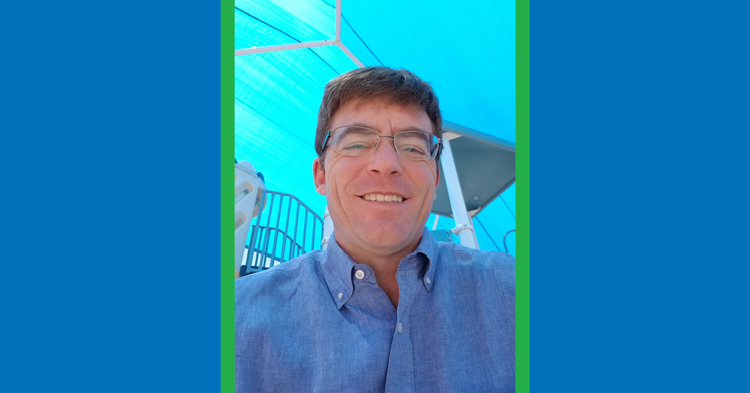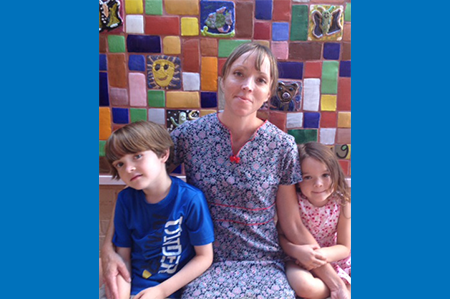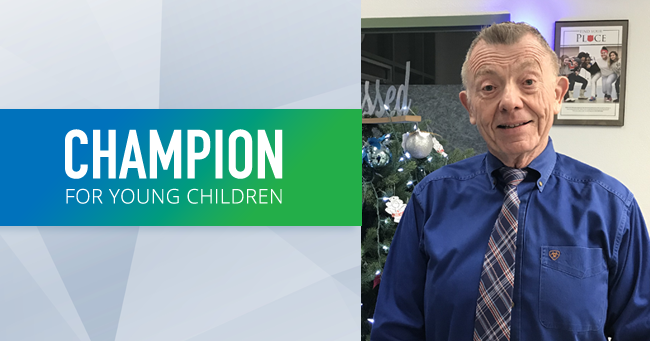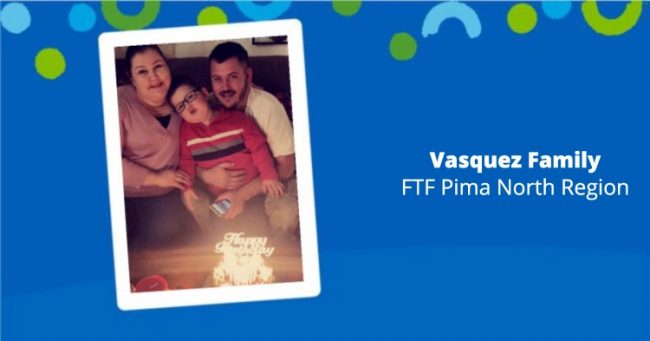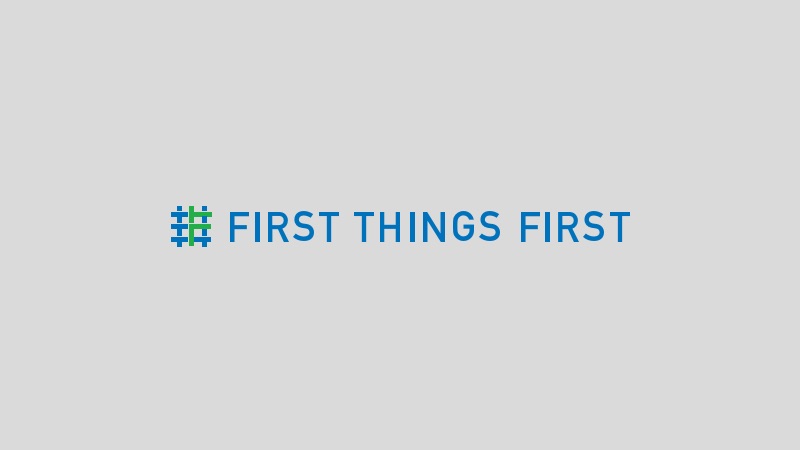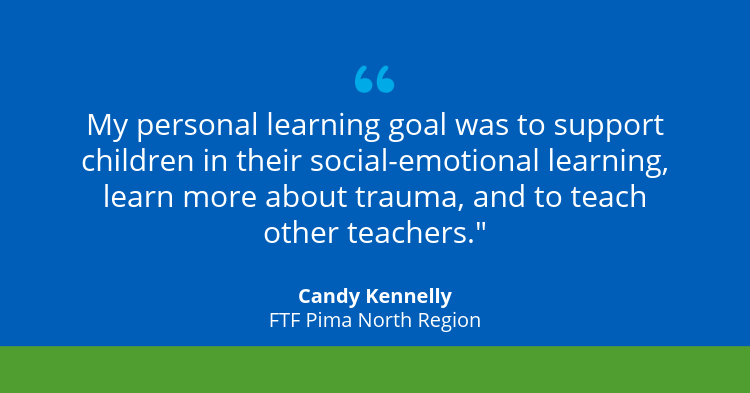
Throughout her 22-year career, preschool teacher Candy Kennelly has continuously pushed herself to grow and be a better educator. When she learned about a professional development opportunity that would help her gain understanding of trauma-informed care practices, Kennelly was quick to sign up.
“My personal learning goal was to support children in their social-emotional learning, learn more about trauma, and to teach other teachers,” she said. “When teachers know better, we do better.”
The Tucson educator signed up for a program called Great Expectations Communities of Practice, which offers professional development for early educators on a variety of topics, individualized coaching sessions and opportunities to meet and learn from other educators.
The First Things First Pima North Regional Partnership Council funds Great Expectations, providing early childhood practitioners access to professional development that improves their knowledge of the development and learning of children from birth to age 5.
Kennelly became a member of the Raising Resilience Community of Practice, where she spent the last four years attending monthly Saturday meetings in a cohort of early childhood professionals, discovering how to embed opportunities to help children heal from traumatic early experiences into a classroom setting.
Adverse Childhood Experiences, also known as ACEs are traumatic events such as abuse, neglect and household dysfunction that occur during childhood. They are also sources of toxic stress and can harm children’s developing brains so acutely that the effects show up decades later
By focusing on promoting safety, emotional literacy and self-regulation, child care professionals are better able to teach young children the social-emotional skills they need to engage in developmentally appropriate relationships and reduce challenging behaviors.
While the program curriculum was built to help educators better support young children, members of the cohort were first asked to reflect on ways they support themselves.
“The first year of the program was all about self-care, self-regulation. That leads to self-awareness,” Kennelly said. “If you don’t have those conversations with yourself, then you’re never going to be aware of your triggers and things that get you hyped up in negative ways. Ultimately where does that negative energy go? It goes to your classroom, and that’s what we all want to avoid.”
Kennelly feels that she found this program at just the right time. She sees the impact of the pandemic in her preschoolers’ social-emotional development, many of whom have had a challenging time transitioning into preschool.
“The kids I taught last year and this year had spent most of their lives in their houses,” she said. “They weren’t around anybody, they couldn’t see their family, and now they have mom dropping them off at this new place. That’s trauma, and kids carry those experiences with them.”
Kennelly successfully incorporated the trauma-informed care practices she learned from the program into her classroom at Wings on Words Preschool. Her preschoolers do yoga, learn how to “balance their chi” and practice building empathy. When her students are upset because they miss their parents, Kennelly asks if the child would like to write a “love letter” to them as a way to communicate those big feelings.
“At the beginning of the year I took pictures of all the kids and put them on magnets and then drew a big heart on the whiteboard,” Kennelly said. “During our morning greetings and in our community circle time, when children are absent we put their pictures up in the heart and then we wish them well and blow a kiss to their pictures. Wishing others well is used to teach empathy, because empathy has to be learned. And we need to learn it through adults who can model that.”.
Kennelly received helpful materials to support her learning through the Community of Practice, including children’s books, fidget toys to create calming boxes and professional development resources.
“We are given access to professional videos and textbooks about trauma-informed care that would cost thousands of dollars. I’ve taken advantage of it, it’s been wonderful,” she said.
Kennelly has even taken the skills she learned through the Community of Practice outside of the classroom by working with children in foster care settings, children preparing to undergo surgery at Banner hospital and by facilitating trainings on trauma-informed care for local school district staff.
While she learned a lot during her four years in the program, Kennelly notes that her professional development journey is far from over.
“I started really learning about resilience in 2010,” she said. “I’ll have these little reunions with former students every now and then, and the first thing they tell me is that they learned how to label and express their feelings in my classroom. I always tell them, ‘Boy, I’m a lot better at that now!’ I’ve learned so much since then, and I’m always trying to learn more.”


